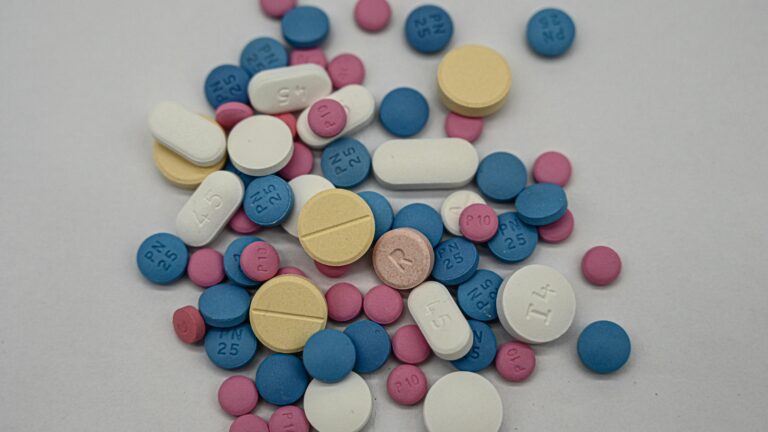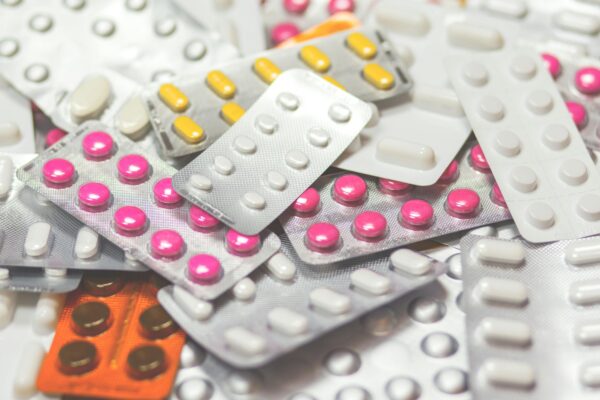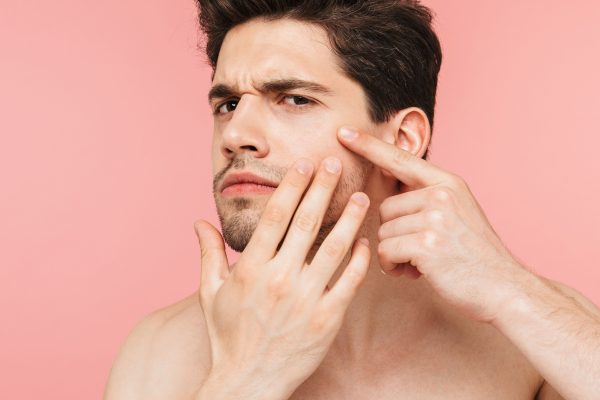Erectile dysfunction (ED) is a frustrating experience for any man. If you’ve been prescribed desipramine, a tricyclic antidepressant, you may be wondering how it could potentially affect your sexual health. Let’s break it down and give you a comprehensive look at desipramine, its connection to ED, and what you can do to manage the situation.
- What is Desipramine?
- The Connection Between Desipramine and Erectile Dysfunction
- Recognizing the Symptoms of ED While on Desipramine
- Managing Erectile Dysfunction Linked to Desipramine
- How to Talk to Your Partner About ED
- Alternatives to Desipramine
- When to Seek Help
- Final Thoughts: You’re Not Alone
- Studies on Antidepressants and Sexual Dysfunction
- Reliable Health Sources
- Further Reading and Support
- FAQs: Desipramine and Erectile Dysfunction
- Question: Can desipramine cause erectile dysfunction?
- Question: How can I manage erectile dysfunction caused by desipramine?
- Question: Are there alternative antidepressants with fewer sexual side effects?
- Question: Is ED from desipramine permanent?
- Question: Can lifestyle changes improve ED caused by desipramine?
What is Desipramine?
Desipramine is a prescription medication primarily used to treat depression. It belongs to a class of drugs called tricyclic antidepressants (TCAs). By influencing certain chemicals in the brain, such as norepinephrine, desipramine can improve mood, energy levels, and overall mental well-being. While it’s effective for treating depression, like many medications, it’s not without side effects.
The Connection Between Desipramine and Erectile Dysfunction
How Antidepressants Affect Sexual Function
Antidepressants, including TCAs like desipramine, can interfere with the intricate balance of hormones and neurotransmitters involved in sexual function. These effects can lead to problems such as:
- Reduced libido
- Difficulty achieving or maintaining an erection
- Delayed ejaculation or anorgasmia (inability to climax)
Why Desipramine May Cause ED
Desipramine alters the levels of norepinephrine and serotonin in your brain. While this helps lift your mood, it can also dampen the signals responsible for arousal and sexual performance. Additionally, tricyclic antidepressants can cause:
- Decreased blood flow to the penis, making it harder to achieve an erection.
- Sedative effects, which may reduce overall sexual desire.
- Nervous system suppression, which can impact erectile function.
Recognizing the Symptoms of ED While on Desipramine
It’s essential to differentiate between occasional performance issues and ED caused by medication. If you notice the following while taking desipramine, you might be dealing with medication-induced ED:
- Consistent difficulty achieving or maintaining an erection during sexual activity.
- Decreased interest in sex, despite being in the mood before starting the medication.
- Symptoms aligning with the start of desipramine treatment.
Managing Erectile Dysfunction Linked to Desipramine
1. Talk to Your Doctor
If desipramine is affecting your ability to perform, don’t hesitate to speak with your healthcare provider. They might:
- Adjust your dosage to find a balance that minimizes side effects.
- Switch you to a different antidepressant with a lower risk of sexual side effects, such as bupropion.
- Recommend combining desipramine with another medication to counteract ED.
2. Consider ED-Specific Medications
Phosphodiesterase-5 inhibitors like sildenafil (Viagra) or tadalafil (Cialis) can be prescribed to help improve blood flow to the penis and enhance erectile function. However, these medications should only be used under medical supervision, especially when combined with antidepressants.
3. Lifestyle Modifications
Some simple changes can go a long way in improving your overall sexual health:
- Exercise regularly: Physical activity boosts circulation and helps combat side effects like weight gain, which can also impact sexual performance.
- Eat a balanced diet: Foods rich in antioxidants and essential nutrients support healthy blood flow and hormone production.
- Manage stress: Chronic stress can worsen ED and undermine the benefits of desipramine.
4. Therapy and Counseling
If depression or anxiety contributes to your ED, combining desipramine with therapy may address the root cause. Cognitive-behavioral therapy (CBT) is a popular choice for managing both mood disorders and sexual dysfunction.
How to Talk to Your Partner About ED
Opening up about erectile dysfunction can be awkward, but communication is key. Be honest with your partner about what’s happening and reassure them it’s not about a lack of attraction or interest. A supportive partner can make all the difference while navigating medication side effects.
Alternatives to Desipramine
If the side effects of desipramine are too disruptive, your doctor might suggest alternative treatments:
- Other antidepressants: Selective serotonin reuptake inhibitors (SSRIs) or serotonin-norepinephrine reuptake inhibitors (SNRIs) might be better tolerated.
- Non-drug therapies: Light therapy, mindfulness techniques, or transcranial magnetic stimulation (TMS) can support mental health without sexual side effects.
When to Seek Help
If your ED persists or worsens, even with adjustments, it’s important to consult a specialist. Urologists and sexual health experts can provide tailored advice and treatments to help you regain confidence and performance.
Final Thoughts: You’re Not Alone
Erectile dysfunction linked to desipramine is a manageable challenge. By working closely with your doctor, exploring lifestyle changes, and maintaining open communication with your partner, you can find solutions that restore both your mental health and sexual confidence.
And hey, remember, you’re not defined by one bad night in the bedroom—or even a few. Life happens, and it’s nothing a little action plan can’t fix. Let’s tackle this head-on (pun intended) and get back to feeling like yourself.
Studies on Antidepressants and Sexual Dysfunction
To provide you with the most accurate and credible information, we’ve gathered insights from scientific studies, expert reviews, and reputable health sources. Below, you’ll find references to studies and resources that support the discussion on desipramine and erectile dysfunction:
1. Antidepressant-Induced Sexual Dysfunction
- Study: Montejo, A. L., et al. (2001). “Sexual Dysfunction Associated With Antidepressant Treatment.”
- Key Findings: This study highlights how tricyclic antidepressants (like desipramine) frequently cause sexual side effects, including erectile dysfunction and reduced libido.
- Source: PubMed
2. Tricyclic Antidepressants and Sexual Health
- Study: Ferguson, J. M. (2001). “The Effects of Antidepressants on Sexual Functioning in Depressed Patients: A Review.”
- Key Findings: The research explores how TCAs impact the neurochemical pathways involved in sexual function, emphasizing desipramine’s role.
- Source: National Library of Medicine
3. The Role of Norepinephrine in Sexual Arousal
- Study: Hull, E. M., & Dominguez, J. M. (2007). “Getting Turned On: The Neural Substrates of Sexual Arousal.”
- Key Findings: This study links norepinephrine modulation, influenced by TCAs, to erectile dysfunction.
- Source: ResearchGate
Reliable Health Sources
1. Mayo Clinic
The Mayo Clinic provides comprehensive details on antidepressants, their side effects, and how they may contribute to sexual dysfunction.
Link: Mayo Clinic – Antidepressants and Sexual Side Effects
2. Cleveland Clinic
This source offers a deep dive into erectile dysfunction, causes, and potential treatments.
Link: Cleveland Clinic – Erectile Dysfunction Overview
3. WebMD
WebMD provides accessible information on how medications, including TCAs like desipramine, can lead to ED.
Link: WebMD – Antidepressants and Sexual Dysfunction
Further Reading and Support
1. International Society for Sexual Medicine (ISSM)
The ISSM is a valuable resource for understanding the complexities of sexual health and treatments for erectile dysfunction.
Link: ISSM – Sexual Medicine Resources
2. Harvard Health Publishing
Harvard’s health articles offer expert insights into managing medication-induced erectile dysfunction.
Link: Harvard Health – Managing ED
3. National Institute of Mental Health (NIMH)
NIMH provides evidence-based guidance on antidepressants and mental health treatments.
Link: NIMH – Depression Medications
For further exploration, consult these studies and resources to dive deeper into the relationship between desipramine and erectile dysfunction. Always discuss your concerns with a healthcare provider for personalized advice and treatment options.
FAQs: Desipramine and Erectile Dysfunction
Question: Can desipramine cause erectile dysfunction?
Yes, desipramine, a tricyclic antidepressant, can cause erectile dysfunction as a side effect. It alters brain chemicals like norepinephrine, which may impact sexual function, including the ability to achieve or maintain an erection.
Question: How can I manage erectile dysfunction caused by desipramine?
You can manage erectile dysfunction by discussing dosage adjustments or alternative medications with your doctor, incorporating lifestyle changes like regular exercise, and exploring ED-specific treatments such as sildenafil (Viagra) under medical supervision.
Question: Are there alternative antidepressants with fewer sexual side effects?
Yes, some antidepressants, such as bupropion or certain SSRIs like sertraline, have a lower likelihood of causing sexual side effects. Speak with your doctor to find the best option for your needs.
Question: Is ED from desipramine permanent?
No, ED caused by desipramine is usually temporary and resolves once the medication is adjusted or discontinued. Work closely with your healthcare provider to address the issue effectively.
Question: Can lifestyle changes improve ED caused by desipramine?
Yes, adopting a healthy lifestyle—such as regular exercise, a balanced diet, reducing alcohol intake, and managing stress—can significantly improve erectile function, even when on medications like desipramine.
Disclaimer: This article is for informational purposes only and not a substitute for professional medical advice. Always consult your healthcare provider for guidance specific to your condition.





